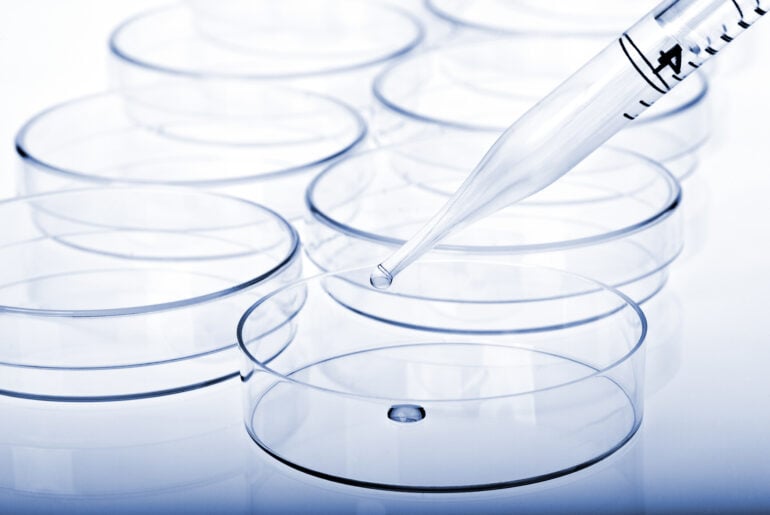In brief
On 1 December 2022, Switzerland’s new Human Genetic Testing Act (HGTA) will enter into force.
The new HGTA provides a comprehensive legal framework for all types of genetic testing (including direct-to-consumer genetic testing and lifestyle genetic testing) and implements stronger measures to protect privacy rights, prevent abuse of genetic data and ensure the quality of genetic tests and the interpretation of the results.
As part of the comprehensive revision of the HGTA, the Human Genetic Testing Ordinance and the Ordinance on the creation of DNA profiles for civil and administrative purposes have been amended accordingly.
Contents
- Key takeaways
- Situation under the old HGTA and extension of the scope of application under the new HGTA
- New categories and additional prerequisites for genetic testing
- Handling of surplus information
- Advertisement of genetic testing
Stronger protection of data privacy and personal rights
Key takeaways
The main features of the amendment include the following:
- Extension of the scope of application of the HGTA from genetic testing for medical purposes only to all genetic testing for medical and non-medical purposes
- Introduction of clear rules under which persons (healthcare professionals and/or others) may initiate different categories of genetic testing and the permissibility of self-testing kits for genetic testing
- Establishment of clear requirements for laboratories performing different categories of genetic testing
- Establishment of comprehensive rules on advertising of genetic testing
- Strengthening of personal rights (e.g., informed consent) and data privacy in the context of genetic testing, including introduction of clear rules on the handling of surplus information
Situation under the old HGTA and extension of the scope of application under the new HGTA
The old HGTA, which will now be replaced by the new HGTA, was introduced in 2008. Prior to the adoption of the new HGTA, the scope of the HGTA was limited to genetic testing for medical purposes only. Because of this limited scope, most direct-to-consumer genetic testing and self-testing kits that have become widely popular over the last few years were not subject to the general requirements stipulated by the HGTA. In fact, it was unclear whether genetic testing not subject to the HGTA was permissible at all. The ever-increasing availability of direct-to-consumer genetic testing and self-testing kits induced a reassessment of the HGTA, during which the existing legislation was found to provide insufficient safeguards. As part of the revision, the scope of the HGTA has been extended to cover genetic examinations for medical purposes, as well as genetic examinations for non-medical purposes.
New categories and additional prerequisites for genetic testing
The new HGTA introduces a distinction between genetic testing for medical purposes and non-medical genetic testing for the analysis of sensitive and non-sensitive personality traits.
In addition, the HGTA establishes strict requirements for the permissibility of prenatal testing and the creation of DNA profiles.
1) Medical genetic testing
Genetic testing for medical purposes includes diagnostic, pre-symptomatic and other genetic examinations performed for medical purposes (e.g., tests for hereditary diseases or predispositions; genetic tests to clarify potential drug intolerances, etc.). Under the old law, genetic testing for medical purposes could only be initiated by physicians. Under the new HGTA, in addition to physicians, dentists, pharmacists and chiropractors are also permitted to initiate select genetic tests for medical purposes in their respective fields. The same applies to persons with recognized foreign qualifications. Genetic testing for medical purposes may only be performed by accredited laboratories.
2) Non-medical genetic testing
Non-medical genetic testing comprises all genetic examinations that are not performed for medical purposes.
- Sensitive personality traits include all information concerning (i) physiological traits, the knowledge of which can influence the subject’s lifestyle, (ii) personal characteristics such as character, behaviour, intelligence, preferences or talents and (iii) ethnicity or other characteristics related to origin. Non-medical genetic testing for these sensitive personality traits may only be initiated by physicians and, to the extent that select genetic tests relate to their respective fields, by dentists, pharmacists and chiropractors. Laboratories performing these genetic tests require authorization from the Federal Office of Public Health (FOPH).
- Non-medical genetic testing for non-sensitive personality traits (e.g., testing for taste sensation, etc.) does not need to be initiated by healthcare professionals, but may instead be offered freely to end-customers as part of so-called direct-to-consumer genetic testing and self-testing kits. There is no authorization requirement for laboratories performing these genetic tests. However, the laboratories must implement a quality management system in compliance with applicable national and international standards.
3) Prenatal genetic testing
The general requirements for genetic testing for medical purposes also apply to prenatal genetic testing. As an additional prerequisite, prenatal examinations may only be performed to clarify characteristics that directly affect the health of the embryo or foetus (e.g., down syndrome). Finally, the HGTA stipulates that parents may only be informed about the sex of the unborn child after the 12th week of pregnancy.
4) Creation of DNA profiles
DNA profiling under the HGTA is only permissible to establish parentage or for identification purposes. The creation of DNA profiles outside of civil and administrative court proceedings requires the informed consent of the data subject. If surplus information is obtained by way of DNA profiling, this information must not be disclosed to the data subject and must not be included in the examination report. The creation of DNA profiles of deceased persons is subject to additional requirements pursuant to the HGTA.
The creation of DNA profiles pursuant to the HGTA is subject to accreditation by the Federal Department of Justice and Police.
Handling of surplus information
The new HGTA introduces clear rules on how to handle surplus information gathered in genetic testing.
Prior to initiating genetic testing for medical purposes, the patient must be informed that surplus information may result in connection with the genetic test about to be initiated. The patient has a right to determine prior to the initiation of the genetic testing if and to what extent surplus information may be communicated to them (“right to know” and “right of not knowing”).
Surplus information gathered in non-medical genetic testing (for the analysis of both sensitive and non-sensitive personality traits) must not be communicated to the patient.
Advertisement of genetic testing
Genetic testing for medical purposes and for prenatal genetic examinations must not be advertised to the general public. This does not apply to healthcare professionals who are permitted to initiate this genetic testing pursuant to the provisions of the HGTA. This advertising must be objective and meet the public need. It must not be misleading or intrusive.
Non-medical genetic testing may be advertised to the general public, provided that the advertisement contains sufficient information on informed consent, the ban on communicating surplus information and the requirements for initiating genetic testing pursuant to Article 31-34 HGTA, and on the restrictions regarding the performance of genetic testing in the context of prenatal examinations and persons incapable of judgment. Misleading information is prohibited.
Public advertising for DNA profiling must include information about the legal requirements for the creation of DNA profiles and informed consent as stipulated in the HGTA. Misleading statements are prohibited.
Stronger protection of data privacy and personal rights
The new HGTA clearly states that all genetic examinations require informed consent that can be revoked at any time. It further specifies in detail what information must be disclosed to the patient prior to the initiation of the genetic testing to obtain legally valid informed consent.
In terms of data protection, the HGTA states that the creation of surplus information is to be avoided as far as possible. Furthermore, anyone handling samples or processing genetic data is obligated by law to protect these samples and data by taking appropriate technical and organizational measures. In addition, the HGTA states that the Swiss Data Protection Act and the data protection laws of the cantons apply.
The use of genetic data for any other (secondary) purposes always requires the consent of the data subject. In the case of anonymized data, it is sufficient to inform the data subject in advance of the secondary use of the anonymized data and this use is permitted provided that the data subject does not object to the anonymization.



